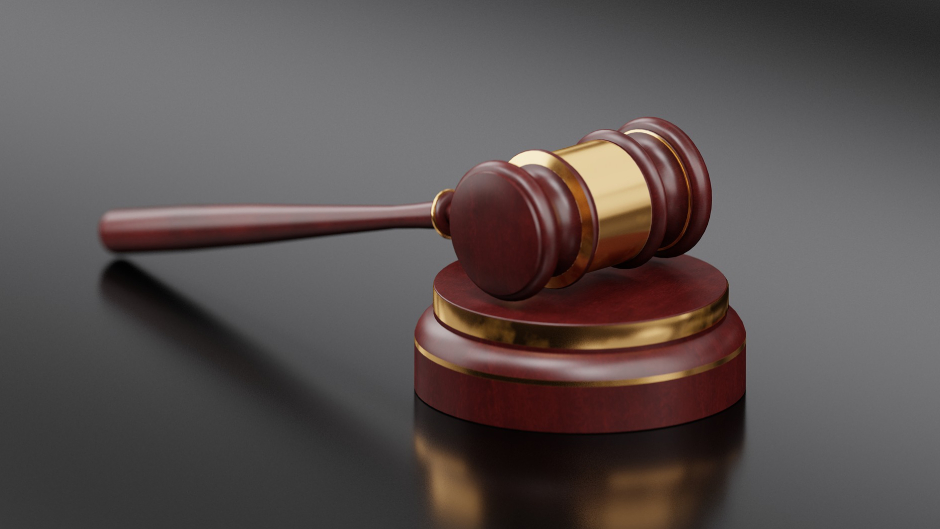A federal appeals court in Texas jas rejected qualified immunity for two Houston police officers who let a drunk driver go and instead charged a Good Samaritan who conducted a legal citizen’s arrest with a felony.
Uber driver Austin Thompson Hughes — a former police officer — was charged wth impersonating a police officer by Officers Michael Garcia and Joshua Few. Months later, Houston officials dropped the charge, and Hughes sued the officers for violating his 4th and 14th Amendment rights. The officers immediately claimed qualified immunity, which was denied by a district court judge. They appealed, but fared no better in the US Court of Appeals for the Fifth Circuit.
The incident took place on March 23, 2019, when Hughes, carrying two passengers, spotted a GMC Sierra driving erratically on Interstate 610 in Houston, Law&Crime reported. Hughes had two passengers in his car, but, suspecting the driver was drunk, called 911 and followed the truck with his flashers on while on the phone with dispatchers.
After the truck slammed into concrete barriers on both sides of the highway and stopped, the call was transferred to another 911 center.
Hughes told the dispatcher he needed to get the driver “out of the car because, I mean, they’re going to kill somebody.” Still on the phone with a dispatcher, Hughes described retrieving the driver’s keys from the ignition and identification from a cupholder and said there were multiple bottles of alcohol inside.
Another 911 caller corroborated Hughes’ statements in a separate call.
22-20621-CV0 by kc wildmoon on Scribd
At one point, the truck’s driver left his vehicle and ran onto the highway. Hughes could be heard on the 911 call yelling for him to stop for his own safety. The dispatcher said help was on the way and hung up, and Hughes decided to handcuff him with cuffs he had in his truck for his own safety. The two Houston police officers arrived 17 minutes later.
In its ruling, the US Court of Appeals noted that “at no point” during the recorded 911 calls did Hughes identify himself as a police officer. That information apparently came from the drunk driver, the court said, who also repeatedly called Hughes “Jesse” and said they’d been drinking together at a flea market prior to the 2 a.m. incident, despite there being no after hours flea market anywhere near the area with a bar.
Although Garcia and Few put the drunk driver in handcuffs, with Garcia interviewing him and Few interviewing Hughes, they ultimately released the drunk and, two days later, arrested Hughes “in his pajamas” at 3 a.m. after telling him they wanted to look at his cell phone. He was jailed overnight and fought the charge for three months before Houston prosecutors agreed there was no probable cause that he committed the crime.
The Circuit Court went through the case thoroughly in a 21-page ruling that began, “For those who worry that qualified immunity can be invoked under absurd circumstances: Buckle up.”
After noting that Hughes’ citizen’s arrest was in line with Texas law, the court noted that Garcia and Few “let the drunk driver go and arrested Good Samaritan Hughes. (Seriously).”
The judges noted key differences between the facts of the case and what the officers submitted in their report of the incident — including their belief in the drunk’s insistence that Hughes insisted he submit “by stating he was a Police Officer.” He and “Jesse,” the drunk said, had been at the flea market just before the 2 a.m. incident. The judges refuted the drunk’s claims:
Hughes and the drunk driver had never met; there is no evidence that Hughes accused the stranger of fooling around with Hughes’s wife; Hughes never drove the drunk driver anywhere; multiple independent witnesses and 911 callers (including Hughes’s own, recorded 911 call) and the Uber app screenshots confirm Hughes was not driving the white GMC Sierra; and there is no evidence of a flea market open in Houston at 2:00 a.m., much less a flea market that doubles as a bar where the drunk driver could drink more than 7 beers.
The officers further wrote that “two female friends” of Hughes drove his Jeep while he drove the drunk’s truck until they argued and Hughes decided to handcuff him. This, the judge’s said, was the drunk’s story and not the facts of what happened.
“All told, Garcia’s affidavit made at least eight material misstatements or omissions,” the appeals court found. “Any reasonable officer would have known, based on the evidence available, that the affidavit contained these errors.”
Although Garcia wrote the affidavit, the court noted that Few signed off on it.
“It is unclear which part of this case is more amazing: (1) That officers refused to charge a severely intoxicated driver and instead brought felony charges against the Good Samaritan who intervened to protect Houstonians; or (2) that the City of Houston continues to defend its officers’ conduct. Either way, the officers’ qualified immunity is denied, and the district court’s decision is AFFIRMED,” the court wrote.
The ruling allows Hughes’s lawsuit to go forward.
For the latest true crime and justice news, subscribe to the ‘Crime Stories with Nancy Grace’ podcast.
[Featured image: Pixabay]



